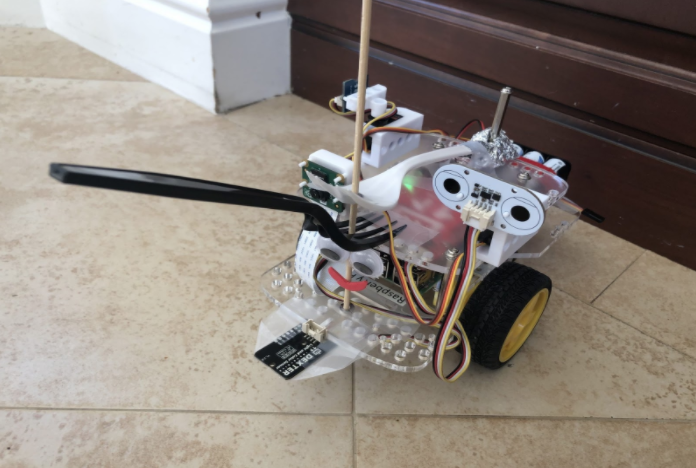by Katie Castor, Undergraduate in Mechanical Engineering
In summer 2020, Tufts Center for Engineering Education and Outreach (CEEO) collaborated with Tufts University College to teach a virtual engineering workshop, Engineering Design Lab (EDL) which is a Pre-College program for High School students focused on exploring the fundamentals of robotics and computation. EDL was taught by Tufts CEEO Research Assistant Professor, Jennifer Cross. There were 2 two-week sessions of EDL with 50 students in each session from all around the world. At the start of the program, each student received a GoPiGo3 robotics kit, which included a Raspberry Pi 3 board, power supply, speaker and sensors such as a distance sensor, force sensor, light & color sensor, camera, and motors. Along the way, students heard broader perspectives on engineering from various guest speakers — engineering disciplinary experts including academic faculty and engineers working in a variety of roles in the industry as well as with startups, allowing them to explore both the “how” and “why” of engineering design.

EDL was structured to be suitable for students of all skill levels, regardless of any prior experience with coding or robotics. Using the Raspberry Pis, students were first introduced to the basics of programming in Python, then were shown how to control each of the sensors & motors, and finally students completed a final design challenge which utilized all of their new skills – including extensive mechanical construction. Throughout the sessions, students were exposed to concepts including robotic sensing, movement, machine learning, Internet of Things (IoT), trouble-shooting and debugging.
Introductory projects included blinking the lights of their robot in a particular sequence or using the distance sensor & motors to drive until sensing an object a certain distance away. Students worked through an assortment of issues and obstacles throughout their journeys to eventually execute their final projects flawlessly. The final project guidelines were open-ended, so everyone could work to their own creativity and interests. Each student selected their own project directions and took those ideas from concept to prototype.
The virtual platform allowed students to work with each other from across the world, bringing different backgrounds & experiences from the comfort and safety of their own homes! Additionally, screen sharing in breakout rooms enabled students to help out their classmates with coding & debugging at the same time as instructors, all with the same visibility of the screen.
There were a huge variety of final project robots, ranging from practical robots programmed to clean dirty grout (photo below) or sort laundry to an entertaining mobile robot dance party! These projects were then presented to classmates, families, and the Tufts community through a virtual video poster session.